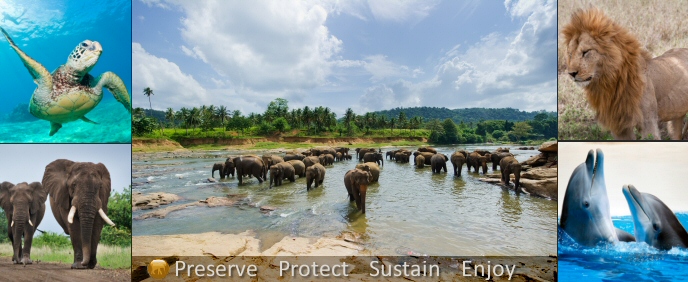
Eco Tours in Malawi - Sustainable Tourism & Conservation Laws
Malawi is a very small, landlocked nation in southern Africa that has been steadily becoming more popular as a tourist attraction over the past few years. Much of this popularity has been attributed to the striking beauty and the unique rural landscape found here. Malawi is one of the poorest nations in the world, with an average life expectancy of 31.5 years. The economy is based upon tobacco agriculture, which is prone to the massive swings in worldwide tobacco demand. This inconsistency is noted by the Malawian government as one of its prime reasons for promoting greater Ecotourism within the country. Despite the dedication of the Malawi government to enhancing its Ecotourism profile, there are only a few environmental laws currently in effect.
The Malawi National Parks and Wildlife Act is the most comprehensive environmental law in Malawi that relates directly to tourism. As the name suggests, the act sets forth guidelines to set aside National Parks in the country of Malawi. It also creates laws governing the taking and management of wild game species both inside and outside of protected lands. The law makes it an offense for anyone to harass wildlife while inside of game reserves, unless that person is on a legal hunting expedition. The law is equally applicable to tourists and locals, and the punishments can be severe depending on the circumstance. For example, if a tourist willingly takes an animal on protected land, it could be defined as an aggravated offense and result in jail time. Inside of National Parks created under this act, the laws of conduct can vary from place to place. Much of the enforcement of these laws is rooted in local interpretations of those laws.
It is important to note how the National Parks and Wildlife Act interacts with the Roads Authority Act. While the Roads Authority Act provides a legal framework for an expanded road system, the protection offered by the National Parks Act can sometimes interfere with the implementation of these road plans. Since the further development of a road system in Malawi is considered vital for the promotion of Ecotourism, concessions must often be made between the two acts. A more developed road system means greater access for tourists, however it also means greater impacts on the places tourists come here to see in the first place.
While Malawi is still classified as a “poor, developing nation� by the UN and the IMF, it is moving along a definite path toward modernization. With sweeping mountain ranges, deep gorges, and the popular Lake Malawi within its borders, there are a number of opportunities for Ecotourism to flourish here. Currently, some of the most popular activities for tourists are trekking and wildlife tours based out of local villages. The government of Malawi is also actively working toward the creation of a sophisticated approach toward tourism development, however much of the work being done is still in the planning stage.
While the environmental laws of Malawi are still in the developmental phase of their existence, they are being actively developed. It takes a long time for a developing nation to develop the infrastructure necessary to shift their economy from one major input to another. With time, Malawi is expected to reach a sustainable balance that is conducive to a thriving Ecotourism industry.

